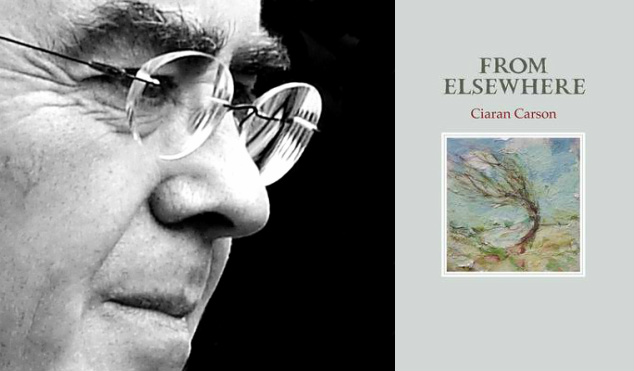For a poet, there are easier things than translations. The translating poet inevitably has to face the gnawing burden of writing for two people. “It’s a desperate system of double-entry bookkeeping,” Howard Nemerov lamented. The spectral presence of the author is always hovering somewhere, ready to strike whenever the nuance of a word or phrase falters. Even then, the process of translation is seductive. It provides a poet with the rare opportunity to examine the art of another writer, often with intriguing results. The cryptologist’s glee at unveiling messages and new lines of thought converge into the creation of a new kind of work that is as dependent on the translator’s moment in time as much as it is to the author’s.
Many readers may be familiar with Ciarán Carson’s work as translator. His versions of seminal Irish texts Táin Bó Cúailnge (The Cattle Raid of Cooley) and Cúirt An Mheán Oíche (The Midnight Court) have a robust freshness and vitality that readily appeals to contemporary audiences. Reading Carson’s Táin, one can sense the sounds, smells, and voices of that particular world of pre-Christian Ireland (now so heavily appropriated into the pop-culture fabric of Game of Thrones).
His newest work, From Elsewhere (Gallery Books, 2014), is a collection of 81 short poems by the French poet Jean Follain (1903-1971), each accompanied by a short poem of Carson’s, an original work inspired by the Follain poem, or, as Carson describes it: “a translation of the translation.” From Elsewhere is certainly not Carson’s first foray into French translation. In 1998 he translated an array of Rimbaud, Baudelaire, and Mallarmé in The Alexandrine Plan and in 2012 he published his translations of Rimbaud’s Illuminations, In the Light Of (both published by Wake Forest University Press). READ MORE…

